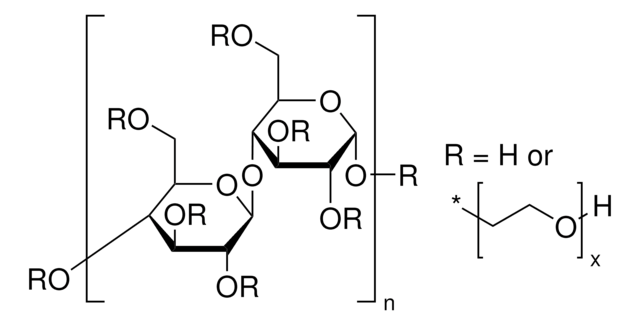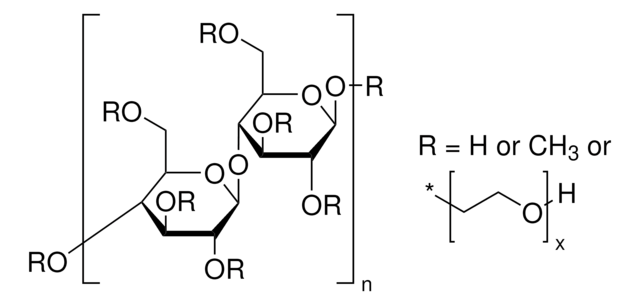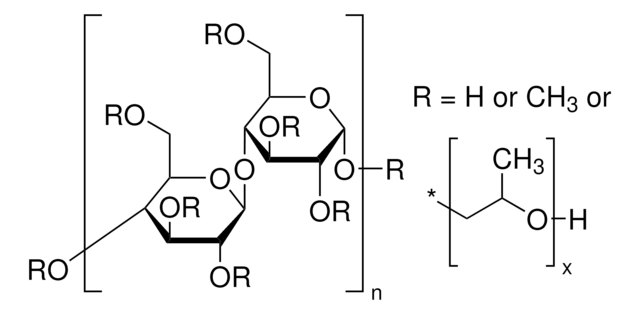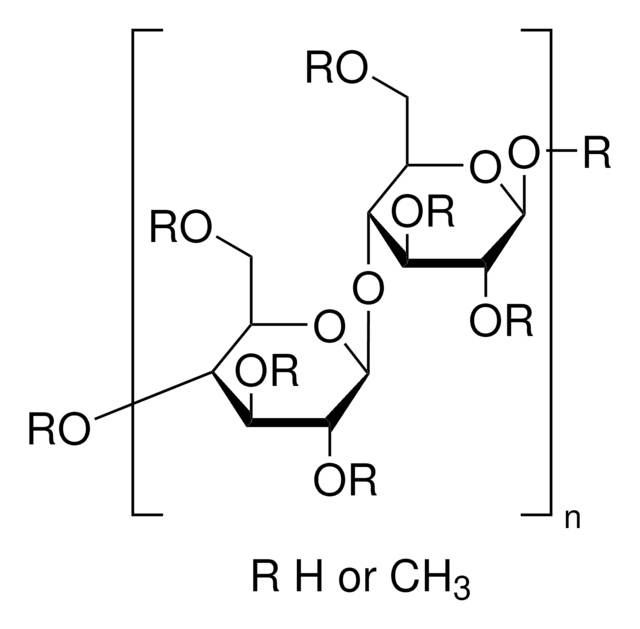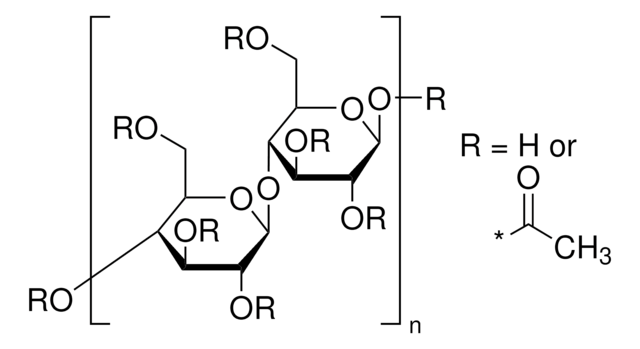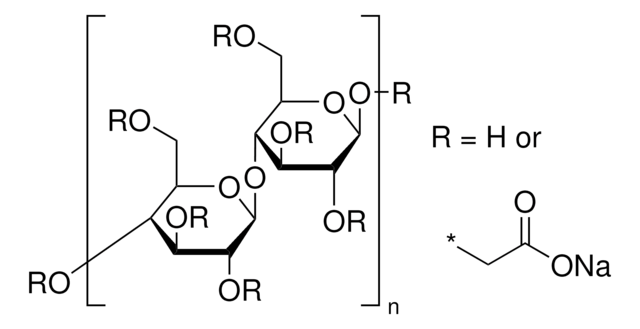434965
2-Hydroxyethyl cellulose
average Mv ~90,000
Synonym(s):
Cellulose hydroxyethyl ether
About This Item
Recommended Products
form
powder
Quality Level
autoignition temp.
725 °F
mol wt
average Mv ~90,000
extent of labeling
2.5 mol per mol cellulose (M.S.)
viscosity
100-180 cP(lit.)
density
0.6 g/mL at 25 °C (lit.)
InChI
1S/C29H52O21/c1-10-15(34)16(35)24(13(8-33)45-10)49-28-20(39)18(37)25(50-29-26(43-5-4-30)21(40)23(42-3)12(7-32)47-29)14(48-28)9-44-27-19(38)17(36)22(41-2)11(6-31)46-27/h10-40H,4-9H2,1-3H3
InChI key
CWSZBVAUYPTXTG-UHFFFAOYSA-N
Looking for similar products? Visit Product Comparison Guide
Related Categories
General description
Application
Storage Class Code
11 - Combustible Solids
WGK
WGK 1
Flash Point(F)
Not applicable
Flash Point(C)
Not applicable
Personal Protective Equipment
Certificates of Analysis (COA)
Search for Certificates of Analysis (COA) by entering the products Lot/Batch Number. Lot and Batch Numbers can be found on a product’s label following the words ‘Lot’ or ‘Batch’.
Already Own This Product?
Find documentation for the products that you have recently purchased in the Document Library.
Customers Also Viewed
Our team of scientists has experience in all areas of research including Life Science, Material Science, Chemical Synthesis, Chromatography, Analytical and many others.
Contact Technical Service